-
March 1
1739—The British government is forced to sign a peace treaty with the Jamaican Maroons. The Maroons were escaped slaves or, to put it another way, Africans who refused to be slaves. When the Spanish lost Jamaica to the British in 1665, they freed many of their slaves and called them Maroons or “wild.” The Maroons set up villages, were frequently joined by other escaped slaves and eventually began to wage a highly successful guerrilla war against the British. Under the terms of the peace treaty, the Maroons were designated a free people and given 1,500 acres of land.
1780—Pennsylvania becomes perhaps the first state to abolish slavery. There is some confusion about the effective dates of the laws passed during this period, which called for the gradual elimination of slavery. The honor of being the first state to ban slavery may actually go to Vermont.
1875—Congress enacts the first Civil Rights Bill. It granted Blacks the right to equal treatment in inns, on public transportation, in theaters and places of amusement. However, with the end of the progressive Reconstruction period, Jim Crow laws were passed throughout the South which largely ignored the Civil Rights Bill. African-Americans did not regain most of the rights granted in 1875 until the Civil Rights Movement of the 1960s.

Harry Belafonte
1927—Entertainer and political activist Harry Belafonte is born Harold George Belafonte on this day in Harlem, N.Y., to Jamaican immigrant parents. Belafonte developed an early flair for entertainment and in the post-World War II period, he became one of the most popular vocalists in America and made Calypso popular throughout the nation. In 1959, he became the first African American to win an Emmy. However, from the 1960s forward he mixed his entertainment career with active participation in the Civil Rights Movement and other social causes. He has been a frequent critic of Republican conservatism and conservative Blacks. In 2002, he was accused of labeling Colin Powell and Condoleezza Rice “house niggers” for their support of President Bush’s right wing domestic and foreign policies.
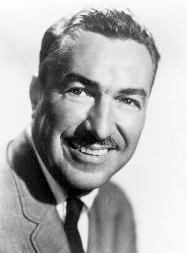
ADAM CLAYTON POWELL
1967—On this day in Black history, the U.S. House of Representatives expelled flamboyant and outspoken Black New York Rep. Adam Clayton Powell Jr. from Congress for allegedly misappropriating funds. However, in June 1969, the U.S. Supreme Court declared the expulsion unconstitutional and Powell returned to Congress, but without his seniority. He lost his seat to current Representative Charles Rangel in 1970 and Powell died on April 4, 1972. During his most powerful years in Congress, Powell headed the House Labor and Education Committee and used his powers to help pass a wide range of civil rights and progressive social legislation.
-
March 2
1807—Congress passes legislation banning the slave trade. The law which was to go into effect on Jan. 1, 1808 prohibited the importation of slaves into the U.S. or any of its territories. Despite the law, however, the illegal importation of slaves continued for years. The best available records suggest that the very last slave ship arrived in the U.S. in 1859 off the coast of Mobile, Ala. The ship was called the Clothilde.
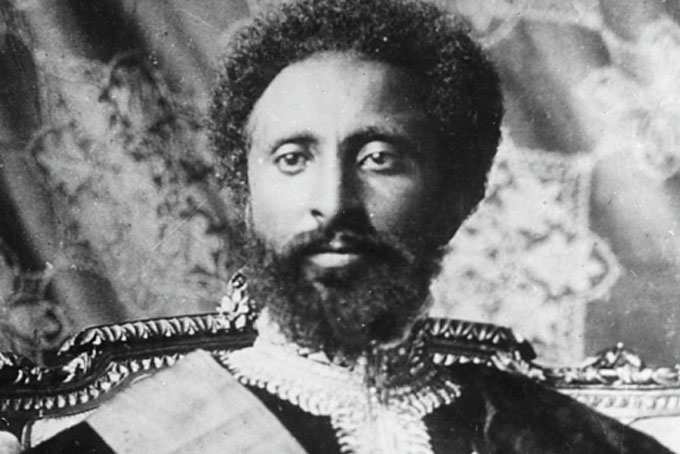
HAILE SELASSIE
1896—Ethiopia defeats Italy at the battle of Adowa (also called Adwa). It was one of the few successful military victories of Africans over Europeans as the latter attempted to colonize and economically exploit the African continent. The nominal head of the Ethiopian forces was Emperor Menelik II, but the lead general was Ras Makonnen—father of the man who would become next Emperor Haile Selassie. The battle, which began on March 1, 1896, would leave 6,000 Italians and 10,000 Ethiopians dead. But the victory forced Europe to recognize Ethiopia as an independent and sovereign nation, as well as, give inspiration to Blacks worldwide who were fighting for freedom.
-
March 3
1968—The infamous COINTELPRO memorandum is sent to FBI field offices around the country. COINTELPRO was a government counter intelligence program aimed at disrupting and destroying Black, peace and anti-war groups. The March 3 memorandum specifically called on FBI agents to infiltrate militant Black organizations and employ various tactics to prevent them from growing individually or uniting with one another. The agents were also told to do whatever was necessary to prevent the rise of a “Black Messiah” who could “electrify and unify” Black people. Approximately one month after the COINTELPRO memorandum was issued, Civil Rights Movement leader Dr. Martin Luther King Jr. was assassinated in Memphis, Tenn. When the COINTELPRO documents were discovered by a reporter in the 1970s, suspicion increased that the FBI and its long-time Director J. Edgar Hoover were in some way involved with the killing of King.

1991—Motorist Rodney King is brutally beaten by a group of Los Angeles police officers. Unknown to them, the beating was caught on video tape. However, a year later (April 29, 1992) when a jury in Simi Valley, Calif., with no Blacks on it found four White officers not guilty of all charges related to the beating, riots erupted in Los Angeles leaving millions of dollars in damage, nearly 50 people dead and more than 300 injured. Ultimately, two of the officers were convicted on federal civil rights charges and King received a financial settlement from the city of Los Angeles. It was during this period that King uttered his signature statement: “Why can’t we all just get along?”
-
March 4
1877—Inventor and scientist Garrett A. Morgan is born in Paris, Ky. Among his major inventions were the gas mask and the automatic traffic signal. He made history on July 25, 1916 when he used his gas mask to rescue 32 men trapped in a mine explosion beneath Lake Erie. The U.S. Army also used the gas mask to save lives during World War I. Morgan died in 1963.
1922—Comedic great Bert Williams dies of pneumonia in New York City at the age of 46. What Jackie Robinson did for Blacks by breaking the color barrier in major league baseball, Williams did on the American stage. He was a comic, singer, writer and producer who spent 10 of his 25 years in show business performing with the famous Ziegfield Follies. W.C. Fields once referred to him as “the funniest man I ever saw.” Williams was born Egbert Austin Williams in the Bahamas.
-
March 5
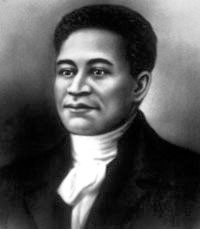
CRISPUS ATTUCKS
1770—Crispus Attucks is shot and killed by British soldiers becoming the first American to die in the struggle for American Independence from England. Attucks was an escaped slave who became a sailor and rope maker. It is unclear exactly how he became involved in the protest of that day. But a crowd had gathered and began to taunt British troops. Attucks, who was of Black and Indian parentage, was inspired to give a speech in which he spoke of the importance of freedom. Suddenly a volley of shots was fired into the crowd. Four people died that day in an event which became known as the Boston Massacre.
-
March 6
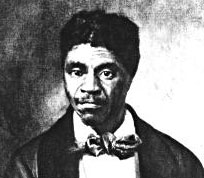
DRED SCOTT
1857—Perhaps the most thoroughly racist decision ever rendered by a U.S. Supreme Court is released on this day—the Dred Scott decision. Scott and his wife, Harriet, had sued in St. Louis Circuit Court claiming they were free because their slave master had taken them from a slave state to the free territory of Missouri. However, in a majority opinion written by Chief Justice Roger B. Taney the court ruled: 1) Blacks, be they slave or free, were not and could not be U.S. citizens and thus were not entitled to file suit in U.S. courts, 2) Denied Congress the power to restrict slavery by declaring the 1820 Missouri Compromise unconstitutional, 3) Declared that where the Constitution said, “All men are created equal,” the phrase did not include Blacks, and 4) Told African Americans that they “had no rights the White man was bound to respect.” However, reflecting the law of unintended consequences, the Dred Scott decision was so harsh and so angered anti-slavery forces that it helped pave the way for the Civil War which ended all slavery in America.
-
March 7
1539—This is probably the day Estevanico—the first Black conquistador—was killed. Estevanico, a Black Moor from Morocco, was sold as a servant when he was only 10 but became friends with his owner Andres de Dorantes and joined a 1527 expedition of 300 men from Spain looking for riches in what would later become the U.S. state of Florida. All but four members of the expedition were wiped out by the Indians they tried to conquer. Estevanico was among those who survived. He was held captive for five years but became a “medicine man” and learned the languages of various tribes. He eventually escaped and in February of 1539 led an expedition to Culiacan, Mexico looking for one of the fabled lost city of gold—El Dorado. It was doing this expedition that he was killed.
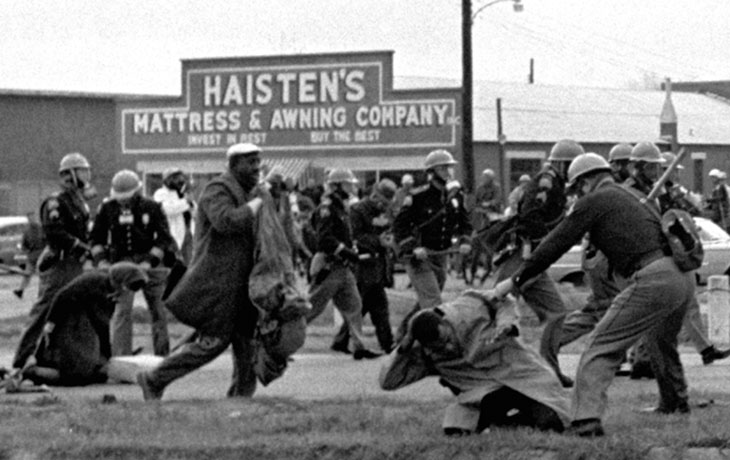
BLOODY SUNDAY—In this March 7, 1965 file photo, state troopers use clubs against participants of a civil rights voting march in Selma, Ala. At foreground right, John Lewis, chairman of the Student Nonviolent Coordinating Committee, is beaten by a state trooper. The day, which became known as “Bloody Sunday,” is widely credited for galvanizing the nation’s leaders and ultimately yielded passage of the Voting Rights Act of 1965. (AP Photo/File)
1965—On this day in Black history, the first leg of the Selma-to-Montgomery march is completed as thousands joined Rev. Martin Luther King Jr. in protesting racial injustice in Alabama. An earlier attempt to complete the march had been disrupted by a police attack. The Alabama National Guard was federalized and U.S. Army troops were called in to protect the marchers. It was shortly after this march that a White female supporter of the civil rights struggle, Viola Liuzzo, was shot and killed by Ku Klan Klan-style terrorists opposed to civil rights for Blacks.

Cuba’s President Fidel Castro visits Jamaica’s Michael Manley during a huge rally in Montego Bay on Sept. 17, 1977. (AP Photo/File)
1997—Former Jamaican Prime Minister Michael Manley dies. Manley is perhaps best known for his brand of democratic socialism and attempting to organize Caribbean and African nations into a bloc to press for better prices for their raw materials.